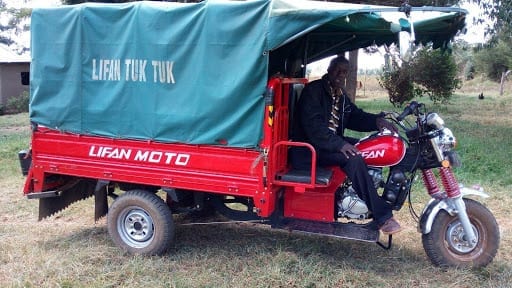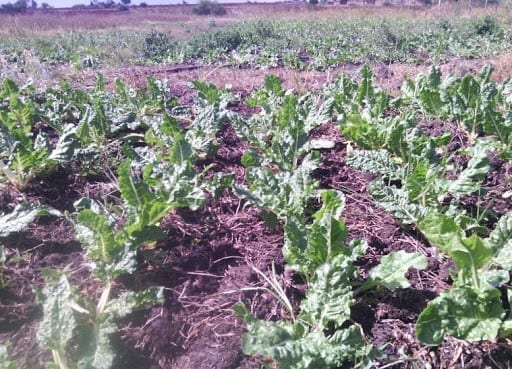Youth In Their Own Words: Kenyan Entrepreneur Gilbert Tarus
Young people around the world are facing more challenges than ever as they enter the workforce. Many youth are experiencing canceled graduations, lack of job opportunities, and economic uncertainty. TechnoServe helps young people in the developing world access the information, capital, and markets they need to overcome tremendous obstacles and create their own economic opportunities. Today we are sharing the story of Gilbert Tarus, a 25-year-old entrepreneur from western Kenya.

Editor’s Note: In Africa, 70% of youth live in rural areas, where jobs are scarce and training opportunities are limited. Youth unemployment and underemployment can hinder economic growth and lead to political and social unrest. In 2011, TechnoServe and the Mastercard Foundation partnered to help rural youth in East Africa transition to economic independence through the Strengthening Rural Youth Development through Enterprise (STRYDE) program. Over eight years, the program equipped more than 68,000 youth with life skills and technical skills that allowed them to start and grow new ventures.
Gilbert Tarus is a 25-year-old entrepreneur from Eldoret, Kenya, who joined the STRYDE program in 2015. This post is the lightly edited transcript of a recorded interview with him.
When I finished my secondary education in 2013, I was unable to join college because I had four other siblings in secondary school. I wanted to give them an opportunity to also finish their secondary education, so I decided to do farming and assist my father. Life was not easy — I used to struggle a lot. I was selling vegetables at the Ziwa market with little profit.
In May 2015, our village elder told us that there would be a youth training that would take place at the Toloita Catholic Church every Monday and Tuesday afternoon. I visited the church during the first training, where I met the teacher, Mr. Elijah Koech, who explained to me all about the training and the requirements to be enrolled. I was so happy to be enrolled.
I learned how to keep my records, how to become a good entrepreneur, and how to do market research before starting any business. Our teacher advised us that we could register our enterprises and take advantage of the 30% procurement opportunities that are reserved for the youth by county, institutions, and national government. I saw this as an opportunity since I was interested in supplying vegetables to the said institutions.
I supplied the vegetables to Kalyet Secondary School for a period of three months, after which I was given a check worth $562. This was the first time I was seeing a check in my life.”

After class, I had a discussion with the teacher on how I could register my enterprise. He told me I needed to have an email, a pin number, a copy of my identification card, and a passport photo. Since I had no email or pin, I had to look for it.
After having all the documents, I went to the Eldoret Huduma Center, where I registered my business, Leltaet Enterprise. It took me a week to get my enterprise certificate. I had also started to practice horticultural farming, where I planted sukuma wiki, cabbages, and spinach on half an acre that I was given by my father. I applied all the best practices I was taught in class, and I made a good harvest.
Then I started looking for places to sell my vegetables. I started with the nearest secondary school, where I was lucky to be given the tender to supply vegetables after the [previous contractor] failed to supply them that particular day. I submitted all the documents required, including a copy of my enterprise certificate.
I supplied the vegetables to Kalyet Secondary School for a period of three months, after which I was given a check worth $562. This was the first time I was seeing a check in my life, and I didn’t know how it worked. I called a friend in Eldoret town, who helped me deposit it in my enterprise account. I continued to supply the vegetables to Kalyet Secondary School after that.
My business was expanding, and I was using a lot of money for transportation, so I decided to look for a cheaper way. That’s when I opted to buy a tuk-tuk [auto rickshaw] to assist in transportation. I went to the market to look for a tuk-tuk and found one that best suited my business. It was priced at $2,435. I had $1,500, which I had saved from my previous business, but I was short almost $1,000. Due to frequent banking, my bank statement was good. My neighbor helped me to get a loan worth $1,000, which I used to buy the Lifan tuk-tuk.
Now I use it to transport vegetables to the Eldoret market and nearby schools. I also provide transport services to people because the tuk-tuk carries eight people. I have also hired one person who is driving the tuk-tuk. I pay him $56 per month. It has saved me a lot in transportation. Thank you to the STRYDE program for empowering me.




